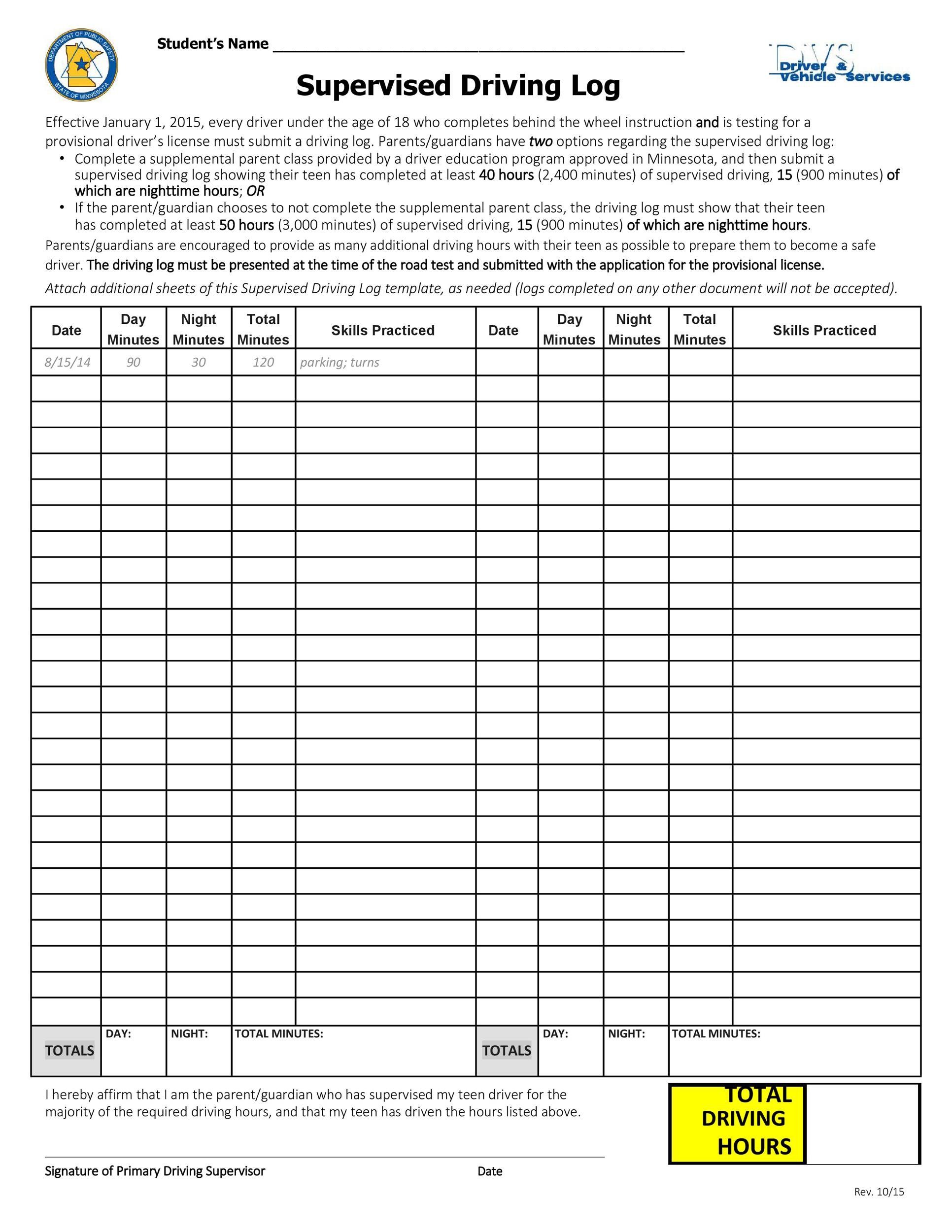If you’re a driver, you know the importance of keeping track of your daily activities. From the routes you take to the number of miles you drive, there’s a lot to keep track of. And that’s why having a driver’s daily log book is so important. This type of document makes it easy to record your activities and ensure that you’re always on top of your game.
What is a Driver’s Daily Log Book?
 A driver’s daily log book is a document that is used to record a driver’s activities on a daily basis. This type of document is essential for drivers who need to keep track of their hours of service, their routes, and their deliveries. It can be used to ensure that drivers are complying with federal regulations and that they are staying safe on the road.
A driver’s daily log book is a document that is used to record a driver’s activities on a daily basis. This type of document is essential for drivers who need to keep track of their hours of service, their routes, and their deliveries. It can be used to ensure that drivers are complying with federal regulations and that they are staying safe on the road.
Why is a Driver’s Daily Log Book so Important?
There are many reasons why a driver’s daily log book is important. For starters, it ensures that drivers are complying with federal regulations. The Federal Motor Carrier Safety Administration (FMCSA) has specific hours of service requirements that commercial drivers must comply with. These requirements are designed to prevent fatigue-related accidents and ensure that drivers are well-rested and alert when they’re on the road.
Another reason why a driver’s daily log book is important is that it can be used to defend against legal claims. If there’s ever an accident or a claim made against a driver, the daily log book can be used to show that the driver was in compliance with federal regulations and that they were taking all the necessary precautions to stay safe on the road.
How to Use a Driver’s Daily Log Book
Using a driver’s daily log book is relatively simple. First, you’ll need to purchase a log book from a reputable dealer. Once you have a log book, you’ll need to fill it out every day. This involves recording your hours of service, your routes, your stops, and any other pertinent information that you need to keep track of.
It’s important to note that there are specific requirements for how a driver’s daily log book should be filled out. For example, drivers must record their start and end times for each day, as well as their breaks and off-duty time. There are also specific requirements for how the log book should be formatted and what information it should contain.
Types of Driver’s Daily Log Books
There are many different types of driver’s daily log books available. Some are designed specifically for commercial drivers, while others are designed for personal use. Some log books are pre-printed with fields for specific information, while others are blank and must be filled out manually.
When choosing a driver’s daily log book, it’s important to consider your specific needs. If you’re a commercial driver, you’ll need a log book that complies with FMCSA requirements. If you’re a personal driver, you may be able to use a simpler log book that doesn’t have as many requirements.
Conclusion
A driver’s daily log book is an essential tool for anyone who spends time on the road. It can help drivers stay safe, comply with federal regulations, and defend against legal claims. If you’re a driver, be sure to invest in a log book and make it a part of your daily routine.
Remember, safety should always come first when you’re on the road. And a driver’s daily log book is just one of the many tools you can use to ensure that you’re always driving responsibly and staying safe.